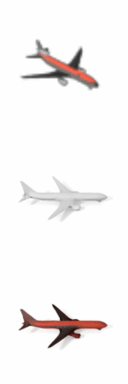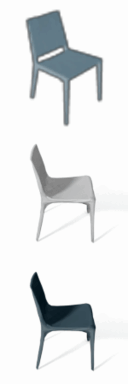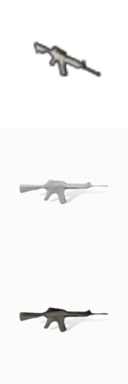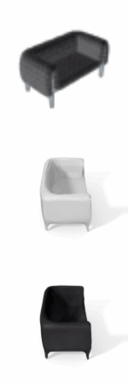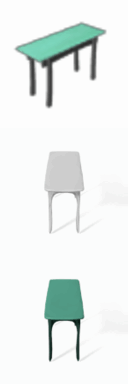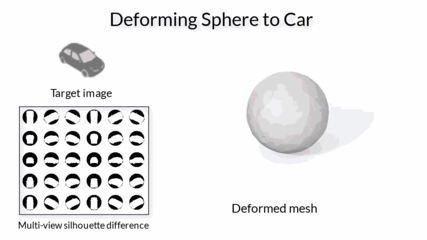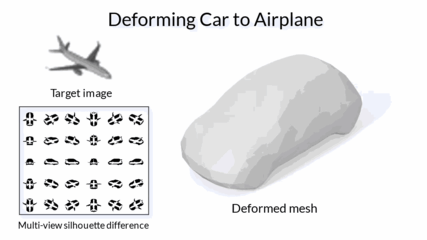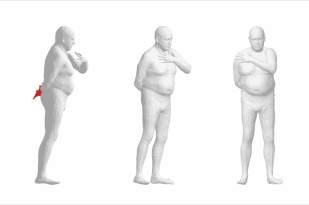Soft Rasterizer (SoftRas)
This repository contains the code (in PyTorch, coming soon) for "Soft Rasterizer: A Differentiable Renderer for Image-based 3D Reasoning" paper by Shichen Liu, Tianye Li, Weikai Chen and Hao Li.
Contents
Introduction
Soft Rasterizer (SoftRas) is a truly differentiable renderer framework with a novel formulation that views rendering as a differentiable aggregating process that fuses probabilistic contributions of all mesh triangles with respect to the rendered pixels. Thanks to such "soft" formulation, our framework is able to (1) directly render colorized mesh using differentiable functions and (2) back-propagate efficient supervision signals to mesh vertices and their attributes (color, normal, etc.) from various forms of image representations, including silhouette, shading and color images.
As a universal module, SoftRas can be plugged into any optimization framework related to image-based 3D reasoning. There are three properties that make SoftRas particularly suitable for mesh-based 3D optimization: (1) SoftRas is occlusion-aware, meaning it is able to flow gradients to the occluded vertices in the input view; (2) SoftRas is able to optimize the depth/z-coordinate of the vertices, moving the vertices along the axis perpenticular to the image plane; (3) by using SoftRas, pixels can have far-range impact on distant mesh triangles, in which the size of the receptive field can be tuned by sigma.
Rendering
We demonstrate the rendering effects provided by SoftRas. Realistic rendering results (1st and 2nd columns) can be achieved with a proper setting of sigma and gamma. With larger sigma and gamma, one can obtain renderings with stronger transparency and blurriness (3rd and 4th column).
Applications
1. 3D Unsupervised Single-view Mesh Reconstruction
By incorporating SoftRas with a simple mesh generator, one can train the network with multi-view images only, without requiring any 3D supervision. At test time, one can reconstruct the 3D mesh, along with the mesh texture, from a single RGB image. Below we show the results of single-view mesh reconstruction on ShapeNet.
2. Image-based Shape Deformation
SoftRas provides strong supervision for image-based mesh deformation. We visualize the deformation process from a sphere to a car model and then to a plane given supervision from multi-view silhouette images.
3. Rigid Pose Optimization
With scheduled blurry renderings, one can obtain smooth energy landscape that avoids local minima. Below we demonstrate how a color cube is fitted to the target image in the presence of large occlusions. The blurry rendering and the corresponding rendering losses are shown in the 3nd and 4th columns respectively.
4. Non-rigid Shape Fitting
We fit the parametric body model (SMPL) to a target image where the part (right hand) is entirely occluded in the input view.
Contacts
Shichen Liu: liushichen95@gmail.com
Any discussions or concerns are welcomed!
Citation
If you find our project useful in your research, please consider citing:
@article{liu2019softras,
title={Soft Rasterizer: A Differentiable Renderer for Image-based 3D Reasoning},
author={Liu, Shichen and Li, Tianye and Chen, Weikai and Li, Hao},
journal={arXiv preprint arXiv:1904.01786},
year={2019}
}


